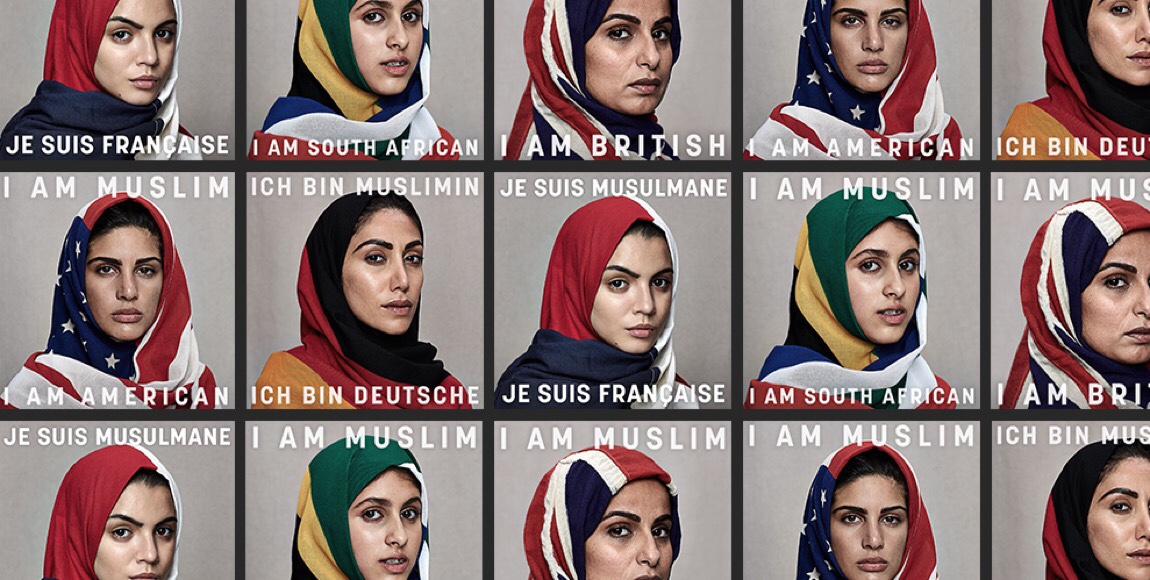For a lot of Muslims, living in president Donald Trump’s world is a difficult reality to accept. We are constantly reassuring people of our humanity – something we actually most certainly do not need to do – and it’s tiring. A major side-effect of this is something very dangerous: we lose control of our own narratives, as they get picked up and transferred and appropriated, and lose nuance.
For Muslim women, it’s even worse. Muslim women live in a world that is constantly telling us that we cannot win. The fact that we aren’t male is usually the factor that counts against us since birth, only because we live in an exceptionally patriarchal world. If we aren’t white, we’re immediately marginalised. And headscarf-clad? Oh, definitely oppressed. Just ask the French.
I’m always fully behind intersectionality, but let’s use some nuance here.
When talking about intersectionality, what you’re effectively doing is talking about the fact that systemic struggles are inherently linked to one another. The struggles in question are the struggles to claim a space in a system which is inherently white supremacist, capitalist, and patriarchal. But what comes with claiming this space is claiming the narrative as well – something that sometimes gets lost in the process. Pertinent to figuring out who a narrative belongs to exactly, you have to first ask – whose struggle is it?
So when there are events or instances where Muslim women are supposedly the ones at centre stage, the ones who are getting platform, why is there so much of it that doesn’t sit well with Muslim women themselves?
Take World Hijab Day, for example. It’s an initiative that relies on non-Muslim women to wear a headscarf for a day in order to validate the struggles of Muslim women and confirm that they do exist.
Look at Dolce & Gabbana bringing out an abaya line to wealthy Arab women, while upholding and supporting a structural system that excludes the right of Muslim women to dress how they want to.
Look at Noor Tagouri – a Muslim US journalist – and her decision to be part of a campaign in Playboy magazine in 2016. Most recently, look at the images of a Muslim woman that were all over posters used in the Women’s March in protest of Trump.
We need to unpack discourse. Is representation good, just because we are getting represented? Is it really okay that we’re satisfied with crumbs?
I must make it clear – Muslim women are not a homogeneous group, and do not have a homogeneous struggle. And when we are pushing out and promoting images like the poster at the Women’s March, or sharing images of Muslim women wearing the flags of their countries as headscarves, we are doing nothing but furthering narratives that Muslim women look a certain way only, and are ready to assimilate.
We are reducing Muslim women in Western countries all over the world to binaries, and forcing them to assert and validate why they do belong in that space. And all these binaries do – “I can be Muslim and American at the same time!” – is reinforce subconscious ideas that Muslim women need to prove themselves. We need to take heed of Lila Abu-Lughod’s words: “we must take care not to reduce the diverse situations and attitudes of millions of Muslim women to a single item of clothing.”
And what these campaigns and initiatives and images do is gloss over glaring hypocrisies, and focus on superficial images in order to detract from broader, more far-reaching systemic issues at hand. Hoda Katebi wrote about the images of Muslim women at the Women’s March, “How are we able to hold up signs of Muslim women wearing the American flag and chant slogans of supposed solidarity while drones carrying the same flag killed our Muslim family in Yemen at the exact same moment and we said nothing? Know the American flag represents oppression, torture, sexual violence, slavery, patriarchy, and military and cultural hegemony for people of colour around the world. Know that Muslims are tired of having to “prove” they are American.”
In an era of division, we don’t need whitewashed, stereotypical, or binary. We need nuance. We need to complicate this idea of representation. We need to stop internalising white and male and every other type of gaze besides our own to such an extent that Muslim people wind up fighting other people’s bigotry for them.
As Fatemah Meghji writes, “We often seek representation and visibility as though representation has some sort of value or is inherently moral. What does representation mean and why should we seek it? Is representation in and of itself moral (according to God’s standards, not a warped version of morality based on moral relativism)? Is having representation and visibility in oppressive structures worthy of celebration?”
“What does progress truly mean for us, and where and how should we be seeking representation? Did having a black man as the President of the US change things for black lives in America or did it only serve to embed the oppression deeper and to obfuscate our already rose-coloured lenses? Representation in oppressive structures often means nothing and does nothing to help us.”
After Tagouri’s Playboy interview, Zahraa Makke highlighted that the only people who had the right to be offended by it – and other incidents like it – are headscarf-clad Muslim women themselves.
“We are not judgmental, nor are we narrow-minded; having principles that don’t waver does not make one such. Why must we always blur the lines of principle in order to accommodate new trends? Not in my name, not in my religion’s name, and certainly not in the name of the very hijab that was preserved through blood, sweat, and tears. I am done with being silent. How dare they attempt to hijack my hijab and the hijab of my sisters and twist it to push their agenda forward? We won’t let that happen.”
In any intersectional context, the main thing to remember is that your struggles certainly do not have to be validated. Your anger is justified. You have the right to speak up for yourself against your own oppression, and voice your opinion on your own struggle, just as you are allowed to be an ally to another struggle. You are the one who has to tell your own story. You are the one responsible for controlling your own narrative.
Muslim women’s narratives belong to no one but themselves. And the more that we think our voices – our thoughts, and what we have to say – are not important, the more we lose our right to our own narrative.









